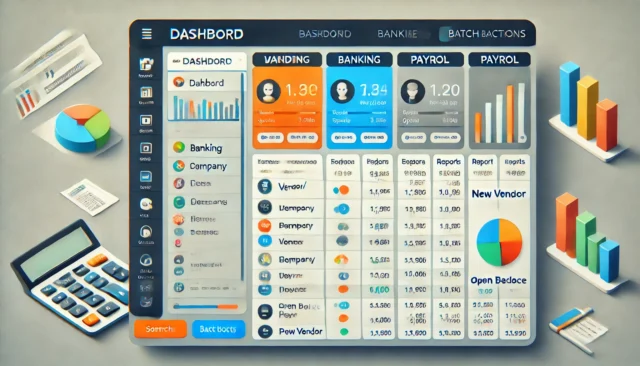Are you considering filing as an S Corporation to save on taxes? While the potential tax savings can be significant, it’s important to understand both the benefits and the hidden costs before making this decision for your business.
Table of Contents
- 1 The Alluring Tax Benefits of S Corporations
- 2 1. Self-Employment Tax Savings
- 3 2. Pass-Through Taxation
- 4 3. Qualified Business Income Deduction
- 5 The Hidden Costs and Complications
- 6 1. Loss of Home Office Deduction
- 7 2. Vehicle Expense Complications
- 8 3. Payroll Requirements
- 9 4. Additional Tax Filing Requirements
- 10 Is an S Corp Right for Your Business?
- 11 How CentsIQ Bookkeeping Services Can Help
- 12 Making the Right Decision
The Alluring Tax Benefits of S Corporations
“File as an S Corp! You can save SO MUCH in taxes!” This is a common refrain you’ll hear from many business advisors, and there’s truth to it. The tax advantages can be substantial:
1. Self-Employment Tax Savings
As a sole proprietor, you pay 15.3% self-employment tax on all your business profits. With an S Corp, you only pay this tax on your “reasonable salary,” while the remaining profits can be taken as distributions free from self-employment tax.
Example: If your business makes $100,000 in profit and you pay yourself a reasonable salary of $50,000, you’ll only pay self-employment tax on the $50,000 salary. The remaining $50,000 can be taken as distributions, saving you approximately $7,650 in self-employment taxes.
2. Pass-Through Taxation
S Corps avoid the “double taxation” that C Corporations face. Your business profits pass directly to your personal tax return, where they’re taxed only once at your individual rate.
3. Qualified Business Income Deduction
S Corps filing before 2025 may qualify for a 20% qualified business income deduction under the Tax Cuts and Jobs Act of 2017, potentially reducing your taxable income significantly.
The Hidden Costs and Complications
People see the carrot, but they don’t know about the downsides. Tax savings ~usually~ takes some kind of work. Here’s what changes when you elect S Corp status:
1. Loss of Home Office Deduction
As a sole proprietor, claiming a home office deduction is straightforward. With an S Corp, you can no longer take this deduction directly. The alternative—having your S Corp rent space from you—creates a more complex arrangement requiring formal documentation and fair market value considerations.
2. Vehicle Expense Complications
The simple mileage deduction you enjoyed as a sole proprietor? Gone. Instead, your S Corp must reimburse you for business miles driven, which requires proper documentation and reimbursement policies.
3. Payroll Requirements
You must establish a payroll system to pay yourself a “reasonable salary.” This means:
-
Setting up payroll processing
-
Withholding taxes
-
Filing quarterly payroll tax returns (941s)
-
Filing annual unemployment tax returns (940s)
-
Issuing W-2s
The IRS scrutinizes S Corp owner salaries closely, looking for unreasonably low salaries designed to avoid employment taxes8.
4. Additional Tax Filing Requirements
Your business becomes a separate tax entity requiring:
-
A separate tax return (Form 1120-S) due March 15th
-
Schedule K-1 forms for shareholders
-
Potential state-specific S Corp filings and fees
Is an S Corp Right for Your Business?
Generally, S Corps make the most financial sense when your business generates between $75,000 and $250,000 in profits per owner4. At this level, the tax savings typically outweigh the additional costs and complexities.
Example: Sarah runs a consulting business earning $120,000 annually. As a sole proprietor, she paid approximately $18,360 in self-employment taxes. After electing S Corp status and setting a reasonable salary of $70,000, her self-employment taxes dropped to about $10,710—saving her $7,650 annually. Even after paying $1,200 for payroll services and $800 for S Corp tax preparation, she still netted $5,650 in tax savings.
How CentsIQ Bookkeeping Services Can Help
At CentsIQ.com, we specialize in helping small business owners navigate the complexities of S Corporation taxation. Our comprehensive bookkeeping services include:
-
S Corp Setup and Compliance: We’ll help determine if an S Corp is right for you and assist with the election process.
-
Payroll Management: Our team handles all aspects of payroll, ensuring you pay yourself a “reasonable salary” that satisfies IRS requirements while maximizing tax savings.
-
Quarterly Tax Planning: We don’t just record transactions—we proactively identify tax-saving opportunities throughout the year.
-
Financial Reporting: Receive clear, actionable financial reports that help you make informed business decisions.
-
Tax Preparation Coordination: We work seamlessly with your tax professional to ensure your S Corp filing is accurate and maximizes available deductions.
Making the Right Decision
It’s going to cost you money and time to operate as an S Corp, so it’s essential to talk to a professional before making this election. At CentsIQ, we can help you:
-
Calculate your potential tax savings based on your specific business situation
-
Weigh these savings against the additional costs and administrative requirements
-
Implement efficient systems to minimize the administrative burden if you decide to proceed
Remember, the biggest S Corp mistake is electing this status without understanding the full picture. The tax savings are real, but they come with responsibilities that require proper management.
Ready to explore whether an S Corp could benefit your business? Contact CentsIQ today for a personalized assessment of your potential tax savings and a clear explanation of what’s involved in making this transition successful.







